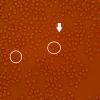I basically just went through several years of severe, significant stress, depression, anxiety where looking back it seems like I was in a chronic 'high cortisol' state.
Given those symptoms you experienced, you might want to have a look at the list of symptoms my suspected enterovirus caused when I first caught it. Within a a month or two, my virus triggered in me a whole array of neuropsychological symptoms, including:
severe mental tension and anxiety (generalized anxiety disorder)
anhedonia (lack of feelings of pleasure or reward from life’s normal activities)
loss of motivation
depression
frail and feeble emotionally
memory and concentration difficulties
My website here lists all the symptoms my virus triggered. As this virus spread to more than 30 friends and family, it triggered similar symptoms in several other people too, so my symptoms were not just an idiosyncratic response to the virus; the virus I caught definitely has a propensity to trigger these sort of neuropsychological symptoms, presumably by its affect on the brain.
It was only after two years with my virus that my fatigue and brain fog levels slowly got worse, so that I realized that I had also developed chronic fatigue syndrome / myalgic encephalomyelitis.
It is possible that you may have caught the same virus, given your severe stress, depression and anxiety symptoms.
By the way, if you are still suffering from anxiety, I found some very effective non-drug anti-anxiety treatments, detailed here. My theory is that all the mental symptoms triggered by this virus are underpinned by chronic brain inflammation, which results from the viral infection. I believe the anti-anxiety treatments I found work by reducing brain inflammation, thereby reducing anxiety.
Edited by Hip, 19 September 2016 - 05:39 PM.






















































